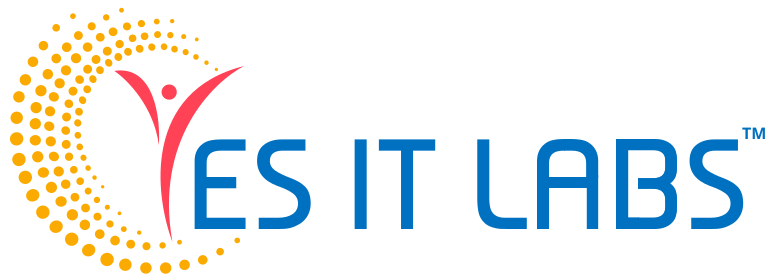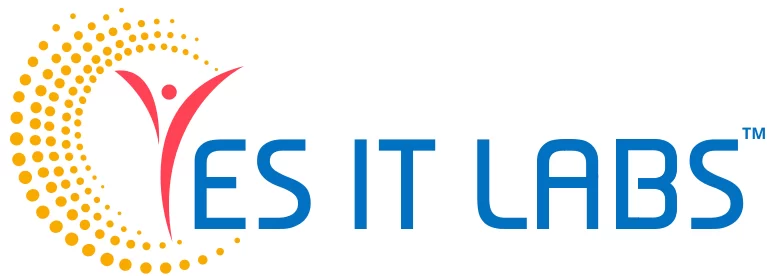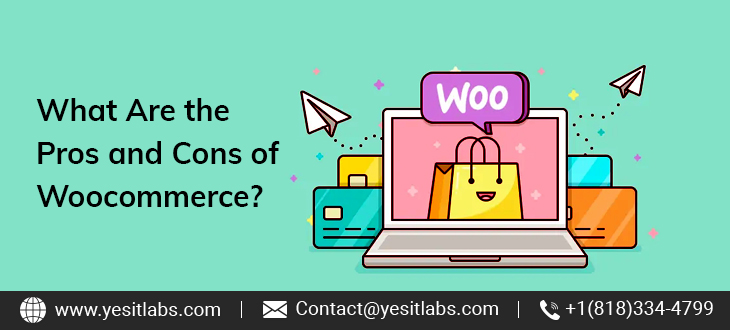The e-commerce landscape has been revolutionized by platforms that make online selling accessible and efficient. Among these, WooCommerce has emerged as one of the most popular choices for businesses of all sizes. Whether you’re a small business owner or an enterprise-level retailer, WooCommerce offers a flexible, scalable, and user-friendly solution. However, like any technology, it comes with its own set of advantages and disadvantages. Thus there are a multitude of pros and cons of WooCommerce that are not only important to consider but also analyzed thoroughly.
In this comprehensive guide, we will explore the pros and cons of WooCommerce, delving into the platform’s strengths and weaknesses to help you make an informed decision.
What Is WooCommerce?
WooCommerce is an open-source e-commerce plugin for WordPress that enables businesses to build and manage online stores effortlessly. It is highly customizable, scalable, and seamlessly integrates with WordPress, making it an ideal solution for those already familiar with the CMS. The plugin offers a wide range of features and functionalities, from inventory management to secure payment gateways.
Additionally, WooCommerce provides businesses with the ability to expand and scale their online presence efficiently. By partnering with a WooCommerce development company in the USA, businesses can leverage professional expertise to maximize the platform’s potential. These companies can tailor WooCommerce to meet unique business needs, such as integrating third-party applications, enhancing security measures, and optimizing performance for high-traffic volumes.
The Pros of WooCommerce
1. Cost-Effective Solution
One of the most appealing aspects of WooCommerce is that it’s free to install and use. Unlike proprietary e-commerce solutions, WooCommerce does not charge a subscription fee. While there may be costs associated with premium plugins and hosting, the core platform remains cost-effective.
Additionally, businesses can minimize expenses by carefully selecting only essential plugins and leveraging free community-supported tools where possible. This flexibility in managing costs makes WooCommerce an attractive option for startups and established enterprises alike, especially when compared to subscription-based e-commerce platforms.
2. Seamless Integration with WordPress
Since WooCommerce is built to work seamlessly with WordPress, it leverages the CMS’s robust features. Users can easily integrate content marketing strategies, SEO tools, and analytics, making it a comprehensive solution for businesses looking to optimize their online presence.
Moreover, the integration with popular plugins like Yoast SEO and Google Analytics enhances store visibility and provides valuable insights into customer behavior, making marketing efforts more data-driven and effective.
3. High Customizability
WooCommerce’s open-source nature allows developers to modify and customize almost any aspect of their store. This flexibility makes it possible to build unique and tailored e-commerce solutions that meet specific business requirements.
Custom themes, personalized checkout processes, and tailor-made functionalities can be developed to align with brand identity and business objectives. The ability to customize not only enhances user experience but also sets your store apart from competitors by offering bespoke shopping environments.
4. Large Community Support
The vast WooCommerce community provides extensive support, plugins, and extensions. Whether you need advanced functionalities or troubleshooting assistance, the community-driven ecosystem ensures you are never left stranded.
This active community also serves as a resource for finding tutorials, documentation, and updates that help keep your store running smoothly. Businesses benefit from this collaborative ecosystem by having access to countless solutions without needing to invest heavily in professional support services.
5. Scalability for Growing Businesses
WooCommerce is designed to scale as your business grows. With the right hosting environment and performance optimization, it can support thousands of products and high traffic volumes without compromising on speed or stability.
Businesses that anticipate rapid growth can implement performance optimization techniques such as CDN integration, database caching, and employing high-performance hosting solutions. This scalability is particularly beneficial for e-commerce brands looking to expand their product lines or target new markets without needing to migrate to a different platform.
The Cons of WooCommerce
1. Complex Initial Setup
While WooCommerce is highly flexible, the initial setup can be daunting, especially for beginners. Choosing the right plugins, themes, and configurations requires technical knowledge and expertise. From selecting compatible themes to configuring multiple plugins, the process can become overwhelming.
Additionally, setting up essential functionalities like payment gateways and shipping options often requires a combination of different plugins, making the process even more intricate. Businesses may find themselves spending considerable time troubleshooting issues or looking for specific solutions online, which can slow down the launch process.
2. Potential Additional Costs
While the core plugin is free, many essential features require paid extensions. These can add up quickly, particularly if your store needs advanced functionalities like multi-currency support, advanced shipping options, or premium themes.
Furthermore, customizing your store to meet specific business needs often involves purchasing premium plugins or hiring developers, leading to unforeseen expenses. The costs don’t just end at plugins—premium themes, security enhancements, and performance optimization tools may also contribute to the overall expenditure. Careful budgeting and planning are essential to avoid cost overruns when building a robust WooCommerce store.
3. Performance Issues with High Traffic
Managing performance on WooCommerce can be challenging, especially for stores with a large product catalog or high daily traffic. Without the right server configuration and caching solutions, page load times may suffer, negatively impacting user experience. Slow performance can also lead to cart abandonment and lost sales.
To address these issues, it is crucial to invest in a reliable hosting solution, implement caching mechanisms, and consider Content Delivery Networks (CDNs) to reduce server load. Additionally, regularly optimizing the database and using performance-enhancing plugins can mitigate speed-related problems, ensuring a smooth shopping experience even during peak traffic.
4. Security Vulnerabilities
As an open-source platform, WooCommerce is susceptible to security vulnerabilities if not properly maintained. Regular updates and the use of reputable plugins are essential to safeguarding your store.
Failing to secure your site can result in data breaches, malware attacks, and loss of customer trust. Implementing robust security measures, such as SSL certificates, two-factor authentication, and regular malware scans, can significantly reduce these risks. Additionally, partnering with security experts or investing in security-focused plugins can further enhance your store’s protection against cyber threats.
Real-World Use Cases: Success and Challenges
To truly understand the pros and cons of WooCommerce, let’s look at some real-world examples. From small local shops to global brands, many businesses have successfully harnessed WooCommerce to build profitable e-commerce solutions. One of the key drivers of success is collaborating with a WooCommerce development company in the USA, which can help streamline the integration of advanced features and customize the platform according to specific business requirements.
These companies are equipped with the technical expertise needed to handle both small-scale and large-scale operations, ensuring performance optimization while maintaining flexibility. However, the common challenge remains—balancing flexibility with performance optimization and keeping the store updated with the latest features and security protocols.
Tips for Optimizing Your WooCommerce Store
To get the best out of WooCommerce, consider the following strategies:
- Invest in quality hosting (consider AWS freelancers for reliable cloud hosting solutions) to ensure your store runs smoothly even during peak traffic periods. High-quality hosting can significantly enhance your website’s loading speed and stability, minimizing potential downtimes and improving the user experience.
- Regularly update your plugins and themes to maintain compatibility and security. Keeping your store up to date not only ensures smooth performance but also reduces vulnerabilities from outdated components.
- Implement advanced caching mechanisms to boost performance and decrease page load times. Utilizing caching plugins and employing Content Delivery Networks (CDNs) can drastically improve speed and reliability, especially during high-traffic events.
- Hire Web developer freelancers to customize and optimize your store for your specific needs. They can implement unique design elements, integrate specialized functionalities, and ensure the store aligns with your brand identity. Professional developers can also troubleshoot performance issues and enhance your site’s overall responsiveness.
How to Get Started with WooCommerce
Getting started with WooCommerce involves choosing the right hosting, installing WordPress, and configuring the plugin to suit your business model. It’s crucial to start with a reliable hosting provider to ensure fast loading speeds and minimal downtime, as poor performance can significantly impact user experience and search engine rankings.
Next, you’ll need to install WordPress and set up the WooCommerce plugin, which involves configuring essential settings like currency, payment gateways, and product listings. While the platform is user-friendly, businesses aiming for a professional and efficient setup often benefit from hiring experienced WordPress developers or collaborating with a WooCommerce development company in the USA.
These experts not only optimize the initial configuration but also tailor the platform to meet specific business requirements, such as integrating advanced analytics, implementing secure payment options, and ensuring that the store can handle high volumes of traffic without compromising performance. Investing in professional assistance can save valuable time and help avoid common pitfalls associated with a DIY approach, ultimately leading to a more robust and scalable e-commerce solution.
Final Thoughts
WooCommerce is a powerful e-commerce tool, but it requires careful consideration of your business needs and technical abilities to maximize its potential. While the platform offers flexibility and customization, it may require professional support for optimal performance, particularly in complex configurations and maintenance.
Partnering with a WooCommerce development company in the USA can be a game-changer, providing expert knowledge in customizing, securing, and optimizing your store for scalability. Professional developers can also ensure that your store remains fast, secure, and user-friendly, allowing you to focus on core business operations while they handle the technical challenges, leading to long-term success and a modern, resilient e-commerce platform.







